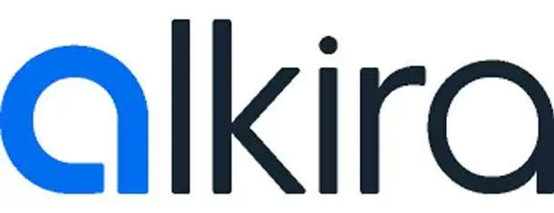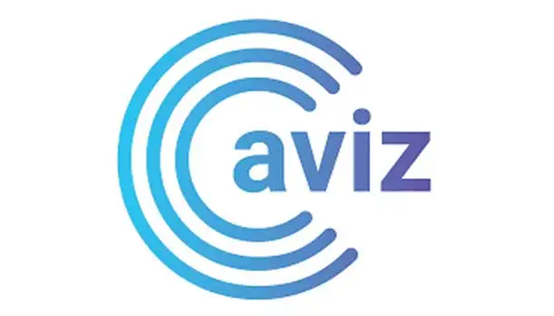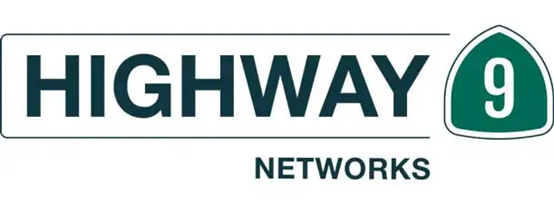Year-end inventory: 10 hot online startups in 2024

With multiple trends on the rise and businesses looking to update their infrastructure, web newcomers are carving out a niche for themselves.
First, edge, multi-cloud, and private network capabilities are quickly becoming a must-have for many organizations that are grappling with the hybrid work trend or changing the physical office blueprint to better match the demands that employees are demanding to work and do business today. At the same time, AI has become a new reality and not just a buzzword. As AI use cases become more prevalent, especially in operational environments, it is often necessary to modify the network infrastructure to accommodate new compute and storage needs, or to be able to connect AI at new locations and at the edge of the network.

Edge and private network startups have sprung up, as have cloud networking upstarts, offering businesses a new way to secure their networks through as-a-service and consumption-based models so they don't have to break the bank when modernizing their networks. To this end, many upstarts in the market are raising new rounds of funding to expand their reach and continue to innovate.
Let's take a look at the 10 hottest networking startups in 2024, from focusing on multi-cloud products and network-as-a-service all the way to edge networking and AI.
Alkira

Startup Alkira focuses on agentless, multi-cloud networking. The San Jose, Calif., based company moved out of stealth mode in 2020 with consumption-based Cloud Services Exchange (CSX), a unified, on-demand offering that enables cloud architects and network engineers to build and deploy multi-cloud networks in minutes. Alkira has since announced its participation in the Microsoft for Startups program and a deeper relationship with AWS, whose Marketplace introduced Alkira CSX.
Alkira launched its cloud-based Zero Trust Network Access (ZTNA) service in October to further simplify enterprise security and networking.
In May of this year, Alkira announced the closing of a $100 million Series C funding round, bringing the total amount raised to date to $176 million.
Aviz Networks

Founded in 2019, Aviz Networks has been innovating its brand of open networking software for cloud-scale infrastructure. The San Jose, California-based company has been focused on building an open, cloud, and AI-first network that prioritizes choice, control, and cost savings.
Earlier this year, Aviz Networks launched One Data Lake, released Network Copilot, a generative AI conversational tool, and upgraded its packet broker product for applications and 5G General Packet Radio Service (GPRS) Tunneling Protocol (GTP) use cases, among other improvements.
Aviz is supported by a number of high-profile investors, including Cisco Investments, and has a partner program for resellers and distributors.
Cape

Founded two years ago, Cape is a privacy-first mobile operator focused on connecting without compromising security and privacy. Cape provides nationwide 5G and 4G coverage while blocking hackers and spam.
Cape's competitors are incumbent U.S. carriers such as AT&T and Verizon, and at the physical infrastructure level and U.S. Cellular partnered to run its own voice services as well as core mobile services on top of its network.
Cape raised $61 million in funding in April from A*, Andreessen Horowitz, XYZ Ventures, ex/ante, Costanoa Ventures, Point72 Ventures, Forward Deployed VC and Karman Ventures.
Celona

Wireless specialist Celona entered the networking space four years ago with a platform that allowed enterprises to build and deploy 5G/4G LTE private networks, filling a big gap in the wireless connectivity market at the time, especially as enterprise interest in private networks has increased dramatically over the past few years.
The Cupertino, California-based company entered the market through a strategic partnership with HPE Aruba, which resells Celona's cellular products. The channel-friendly company also works with partners through the Solution Provider Partner Program. In October of this year, Celona announced the launch of Aerloc, a new set of security features for the security of private 5G wireless networks.
Celona's most recent (and oversubscribed) funding round was a $60 million Series C round in 2022.
Elisity

Elisity is a web segmentation specialist whose IdentityGraph technology has entered the market.
The San Jose, California-based startup offers identity-based micro-segmentation technology that helps enforce granular control over users and devices, which it says enables organizations to employ network segmentation to defend against threats and limit the scope of impact.
Elisity was founded in 2018. The company's CEO, James Winebrenner, joined the company in 2020 after about a year at Aviatrix Systems, a multi-cloud networking company. Elisity also has a partner program for solution providers and system integrators.
In April, Elisity raised $37 million from Insight Partners in a Series B funding round. The company said it will use the funding to develop AI capabilities to predict and prevent cyber threats.
Highway 9 Networks

Highway 9 Networks, a Santa Clara, Calif.-based startup, offers a cloud-native platform built for enterprise mobile users, apps, and AI-powered devices.
Highway 9's edge offerings provide distributed network capabilities, integrated with enterprise IT and major telcos.
Highway 9 is also working with partners through the Mobile Cloud Alliance program to bring connectivity technology and private 5G to end customers.
In February, Highway 9 stepped out of stealth mode and secured $25 million in funding from Mayfield, General Catalyst and Detroit Ventures.
NetAlly

NetAlly started as a business unit under Fluke Networks, which at the time was part of NetScout Systems and became an independent company from 2019. Today, NetAlly enters the market with its own portfolio of switching, wireless, IP monitoring, storage, and security.
NetAlly has about 50,000 global customers in 70 countries or regions around the world, and 100% of its business is carried out through channel partners, including about 300 solution provider partners around the world, of which about 30% are MSP partners. In October, NetAlly hired Jeff McCullough, a 25-year channel veteran, as the company's new vice president of North American sales.
Nile

Nile, a next-generation network services platform provider backed by former Cisco CEO John Chambers, came out of stealth mode in 2022 to launch "reimagined" wired and wireless services delivered entirely as a service. Nile's Enterprise Network-as-a-Service (NaaS) offering is designed to give enterprises an alternative and is different from what many market giants such as Cisco currently offer.
The San Jose, Calif.-based startup launched a full-fledged AI service platform in March this year, with AI applications designed to automate network design, configuration, and management. Nile Services Cloud in the Nile AI architecture, which includes AI-based network design; Nile Service Blocks, which automates network deployment, including access point configuration, and Nile Copilot and Nile Autopilot applications for AI-based network monitoring and operations.
In 2023, Nile raised $175 million in a Series C funding round, bringing the total funding to $300 million.
Prosimo

Multi-cloud networking startup Prosimo stood out in 2021 with its Application eXperience Infrastructure (AXI) platform, which aims to modernize and simplify application delivery and experience in multi-cloud environments. According to the company, the Prosimo platform can coexist with existing vendors in customer environments and can also be used to replace certain tools and features such as zero trust or cloud peering.
The Santa Clara, Calif.-based startup teamed up with security specialist Palo Alto Networks in June to further secure application access across multi-cloud environments. Prosimo's head of marketing said the partnership was crucial as the company was working with a growing number of Fortune 500 companies.
Prosimo raised $30 million in a Series B funding round in 2022.
Recogni

San Jose, Calif.-based startup Recogni focuses on AI-based computing and builds computing systems that provide multimodal generative AI inference for data center environments. The company said it found a problem that many of today's generative AI systems are inefficient and consume too much power. However, Recogni's technology is helping to meet the massive computational demands of AI workloads.
In February, Recogni raised $102 million in a Series C funding round led by Celesta Capital and GreatPoint Ventures. Juniper Networks revealed in November that it had also invested in Recogni in its Series C funding round.